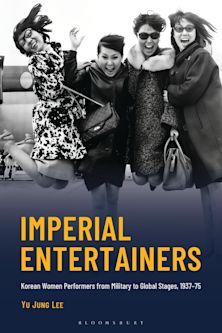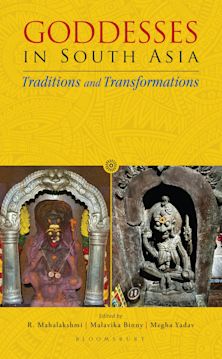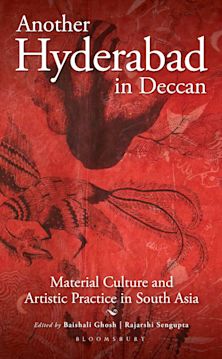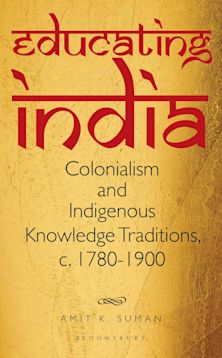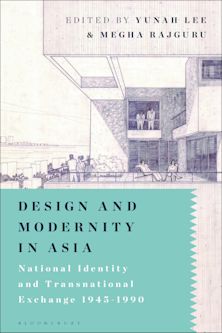- Home
- ACADEMIC
- History
- Asian History
- Ethnic China
Ethnic China
Identity, Assimilation, and Resistance
Xiaobing Li (Anthology Editor) , Patrick Fuliang Shan (Anthology Editor) , Lu Cao (Contributor) , Qiang Fang (Contributor) , Zhaohui Hong (Contributor) , Ting Jiang (Contributor) , Jieli Li (Contributor) , Xiaobing Li (Contributor) , Xiaoxiao Li (Contributor) , Xiaoyuan Liu (Contributor) , Yufeng Mao (Contributor) , Patrick Fuliang Shan (Contributor) , Xiansheng Tian (Contributor) , Linda Q. Wang (Contributor) , Guangqiu Xu (Contributor) , Jiamin Yan (Contributor) , Mei Zhou (Contributor)
Ethnic China
Identity, Assimilation, and Resistance
Xiaobing Li (Anthology Editor) , Patrick Fuliang Shan (Anthology Editor) , Lu Cao (Contributor) , Qiang Fang (Contributor) , Zhaohui Hong (Contributor) , Ting Jiang (Contributor) , Jieli Li (Contributor) , Xiaobing Li (Contributor) , Xiaoxiao Li (Contributor) , Xiaoyuan Liu (Contributor) , Yufeng Mao (Contributor) , Patrick Fuliang Shan (Contributor) , Xiansheng Tian (Contributor) , Linda Q. Wang (Contributor) , Guangqiu Xu (Contributor) , Jiamin Yan (Contributor) , Mei Zhou (Contributor)
You must sign in to add this item to your wishlist. Please sign in or create an account
Description
There are some serious concerns and critical questions about the on-going minority protesting in China, such as Tibetan monks’ self-immolations, Muslims’ suicide bombings, and Uyghur large-scale demonstrations. Why are minorities such as the Uyghur dissatisfied, when China is rising as a world power? What kind of struggle must they go through to maintain their identity, heritage, and rights? How does the government deal with this ethnic dissatisfaction and minority riots? And what is ethnic China’s future in the 21st century? Ethnic China examines these issues from the perspective of Chinese-American scholars from fields such as economics, political science, criminal justice, law, anthropology, sociology, and education. The contributors introduce and explore the theory and practice of policy patterns, political systems, and social institutions by identifying key issues in Chinese government, society, and ethnic community contained within the larger framework of the international sphere.Their endeavors move beyond the existing scholarship and seek to spark new debates and proposed solutions while reflecting on established schools of history, religion, linguistics, and gender studies.
Table of Contents
Part I: Perception, Definition, and Identity
Chapter One: From Five “Imperial Domains” to a “Chinese Nation”: A Perceptual and Political Transformation in Recent History, Xiaoyuan Liu
Chapter Two: Elastic Self-Consciousness and the Reshaping of Manchu Identity, Patrick Fuliang Shan
Chapter Three: Muslim Voices in the Late Qing Debate over the Definitions of Guo and Zu, Yufeng Mao
Party Two: Policy and Marginality
Chapter Four: Uyghur Women in Xinjiang: Political Participation, Employment, and Birth Control, Xiaoxiao Li and Mei Zhou
Chapter Five: Commodifying Naxi and Mo-So Minorities in China’s New Economy, Linda Q. Wang
Chapter Six: The Hui People: Policies, Development, and Problems, Ting Jiang and Xiansheng Tian
Chapter Seven: The Protestant Church Shortage and Religious Market in China: Spatial and Statistical Perspectives, Zhaohui Hong, Lu Cao, and Jiamin Yan
Part Three: Relations, Confrontation, and Solution
Chapter Eight: Still “Familiar” But No Longer “Strangers”: Muslims in China, Jieli Li and Lei Ji
Chapter Nine: Faith and Freedom: Tibetan Buddhist Movements, Xiaobing Li
Chapter Ten: Struggling for a Better Solution: Communist Government and Minorities, Qiang Fang
Chapter Eleven: The Tibet Issue and U.S. Tibet Policy, Guangqiu Xu
Conclusion: New Challenge and Potential Prospects, Xiaobing Li and Patrick Fuliang Shan
Product details
| Published | 16 Oct 2015 |
|---|---|
| Format | Ebook (Epub & Mobi) |
| Edition | 1st |
| Extent | 318 |
| ISBN | 9781498507295 |
| Imprint | Lexington Books |
| Illustrations | 3 BW Illustrations, 12 Tables |
| Publisher | Bloomsbury Publishing |
About the contributors
Reviews
-
Although ethnic politics is not the Achilles heel of the People's Republic of China as it was for the former Soviet Union, it is an important and multifaceted set of issues that necessarily command the attention of China's leaders. Ethnic China presents a dozen well-crafted, thought-provoking, and well-balanced chapters by Chinese American scholars on a broad range of issues relating to ethnicity. They reveal a gap between rosy official depictions of a harmonious, ethnically well-integrated society and a rather grimmer reality in which rapid economic development is not a panacea for all the problems that exist in the multi-ethnic society of contemporary China.
Steven I. Levine, University of Montana
-
As the authors grapple with a range of challenging issues, they offer valuable perspectives on some of the most difficult questions facing both China’s Communist Party leaders and Americans responsible for the formulation of human rights policies toward China. The authors, all Chinese scholars working in American colleges and universities, offer unique insights as they grapple with sensitive questions relating to Chinese national identity, political unity, and human rights. These thought-provoking studies of historical and contemporary issues of ethnic identity and politics in China will challenge both Chinese and American readers to question their assumptions about issues ranging from Tibet and Xinjiang to the foundations and efficacy of American human rights policies toward China.
Harold M. Tanner, University of North Texas

















